The Council are carrying out evening resurfacing works on Acomb Green, from Mon 26 July 7.30pm -12am (3 nights). As with any construction work, there’s likely to be some disruption. https://york.gov.uk/roadworks

The Council are carrying out evening resurfacing works on Acomb Green, from Mon 26 July 7.30pm -12am (3 nights). As with any construction work, there’s likely to be some disruption. https://york.gov.uk/roadworks

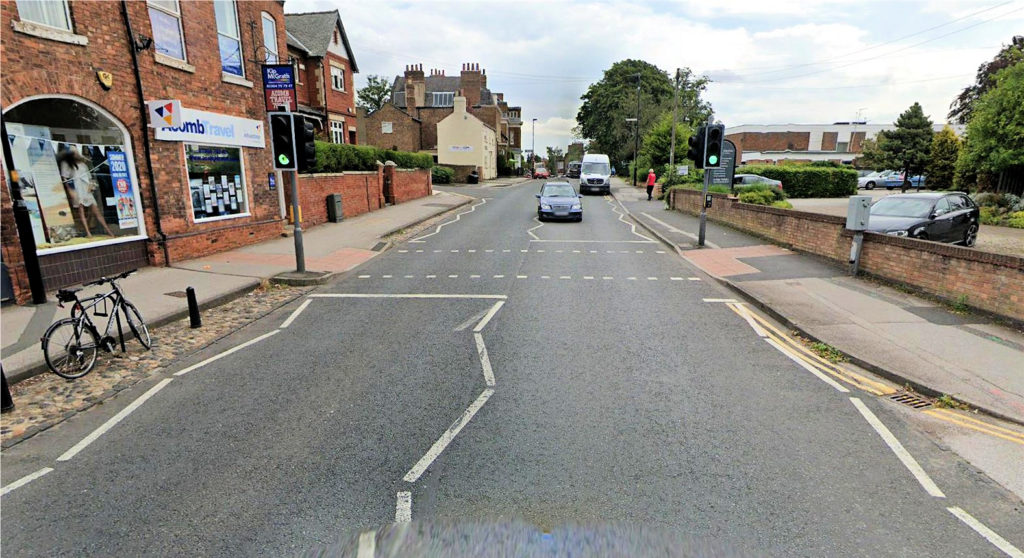
Ageing and outdated traffic signals on the Front Street, Acomb, are set to be replaced this month by City of York Council.
Works are estimated to take around two weeks to complete and will start on Monday 5 July and is expected to be fully completed by Friday 16 July.
New, more reliable, traffic signals will be installed on the crossing as part of the Traffic Signal Asset Renewal Programme.
The new traffic signals will be cheaper to run and more reliable. It will also enable the new systems to link direct to the council’s Traffic and Control Centre, so that the Network Monitoring Officers can manage the flow of traffic better in busy periods by adjusting traffic lights to best suit traffic conditions.
To help minimise disruption works will be carried out from 9am and 4pm, Monday to Friday.
To allow for the works to be undertaken safely, it will be necessary to close a lane of the carriageway and operate temporary signals during the works.
Everything will be done to keep delays to a minimum, but motorists are expected to experience some delays while the works are underway.
Twenty metres of on street parking to the west of the crossing on both sides of the road will be suspended, to allow for the works to take place.

A temporary controlled crossing will be provided during construction to allow pedestrians to cross the road safely. Pedestrian routes and access to all businesses and properties will be retained throughout the duration of the works as will vehicular access.
It will be necessary to temporarily close footways in the works area at certain times during the works and footway diversion routes will be put in place.
Those using the route are urged to plan ahead, allow more time for journeys and to consider alternatives and to use public transport where possible.
For any enquires regarding these works please contact tsar@york.gov.uk.
The easing of lockdown restrictions offers the Council an opportunity to try to restore public service standards at least to the level seen in previous, pre-pandemic, years.
Some services are under particular pressure with potholes taking far too long to fill in.
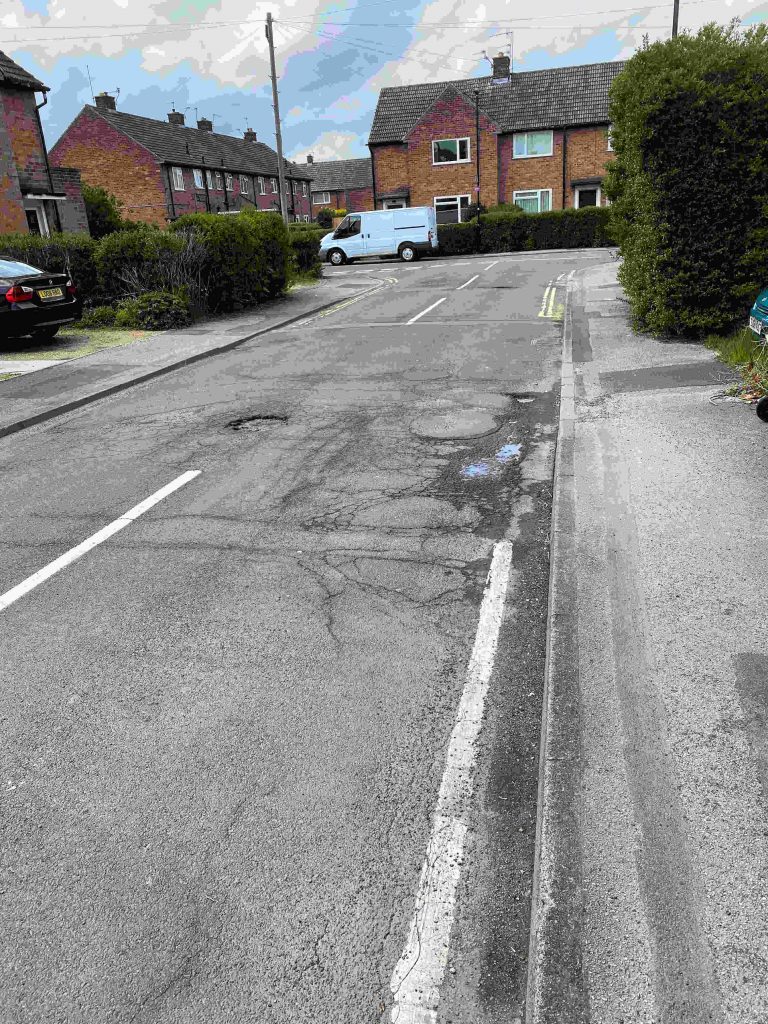
Similarly estate management standards have fallen. At this time of year a regular checks needs to be made to ensure that roads and paths are not blocked and that access road surfaces are kept clear of moss and detritus.
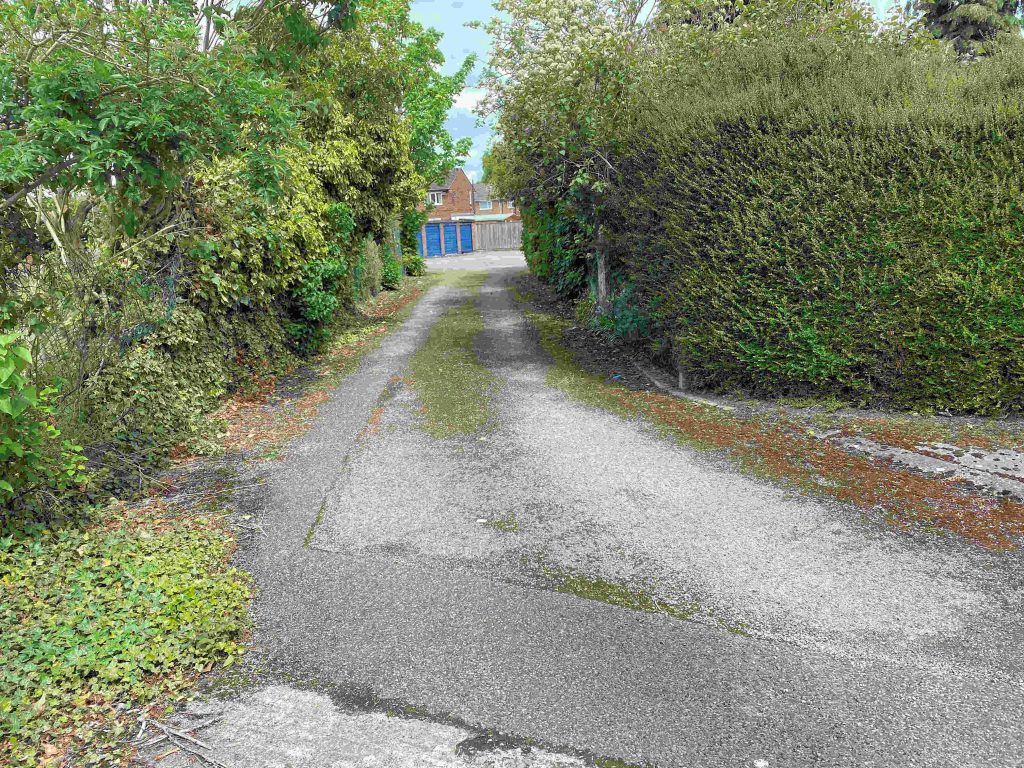
One of the reasons for the decline may be the failure of the Council to fill three of its Housing Management posts. These are the posts that manage individual Council housing estates. They are very much the public face of the Council in their local neighbourhoods.
At least one of the posts has been vacant since last year.
Yet it does not appear among the 57 job vacancies currently being advertised by the Council, none of which are in the housing department. City of York Council Jobs (click)

Lack of budget cannot be an excuse for inaction . The housing account makes a surplus of several million pounds each year.
Elsewhere, local Councillor Simon Daubeney undertook a welcome clean up at the Foxwood shops on Saturday.
He will have found and reported the overturned salt bin.
The area has been subject recently to increased levels of vandalism.
The residents association have suspended maintenance of the planters following damage to the plants.
A Great British Spring Clean litter pick is scheduled to take place on Saturday 12th June.
Meet at 10:30am at the Foxwood Community Centre.
The walk round will last for about an hour.

We understand that the uneven road surface on Askham Lane, near its junction with the A1237 roundabout, will be resurfaced overnight on the 2nd and 3rd of June.
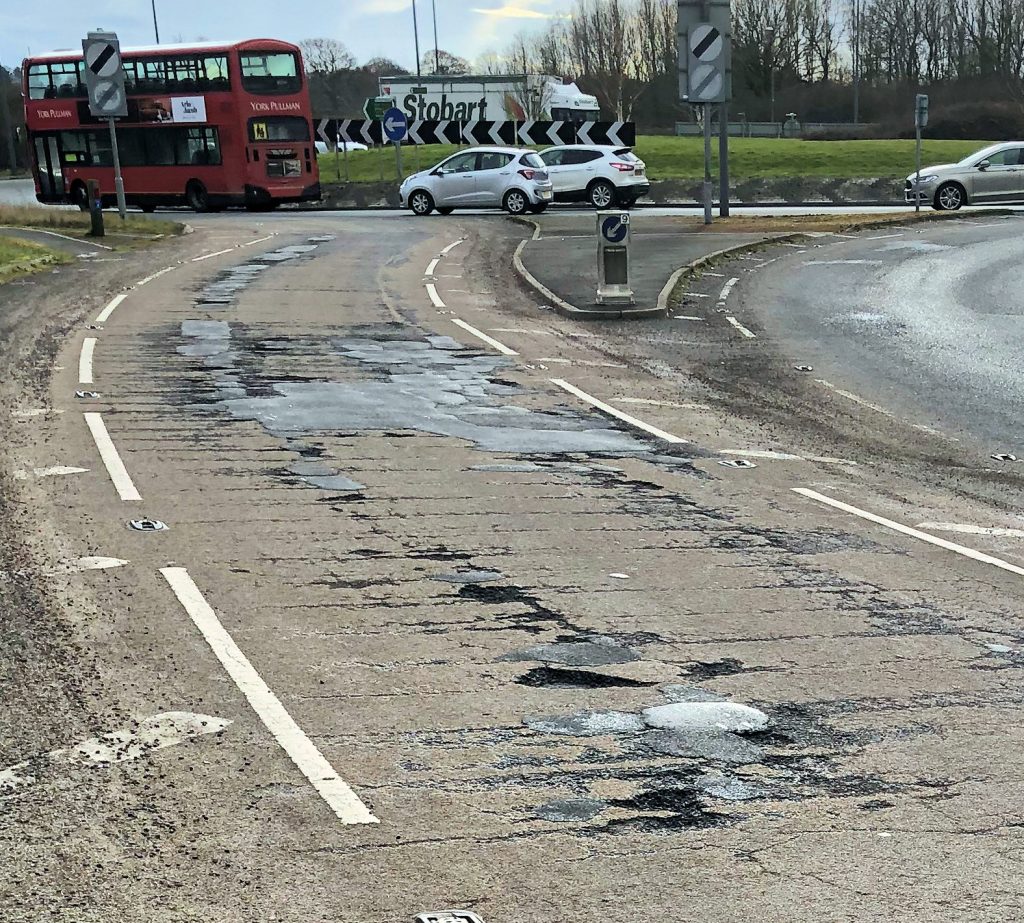
Long overdue but very welcome nevertheless.
One of the positive actions taken by the present Council was its decision to delegate to local Ward Councillors a budget to be spent repairing local roads and footpaths.
The Councils main repairs budget – which is inadequate to maintain standards – is focused on the busiest highways.
Some sub-urban roads haven’t been resurfaced for over 60 years.
Against that background, local Councillors have found it increasingly difficult to justify to local residents the growing number of potholes and ruts often found on local roads.
In 2019, they were given a modest “pot” which could be used to address the worst of the complaints.
It has taken a long time for the programme to get going, but now a series of “decisions” on how the funding will be spent are finding their way on to the Councils web site.
It has to be said that the process is largely impenetrable with no central schemes list being updated (and viewable by residents).
The latest list of proposals covers several wards. The investment decisions are likely to be of more interest to local taxpayers than many more high profile issues which seem to exercise the Councils media relations team.
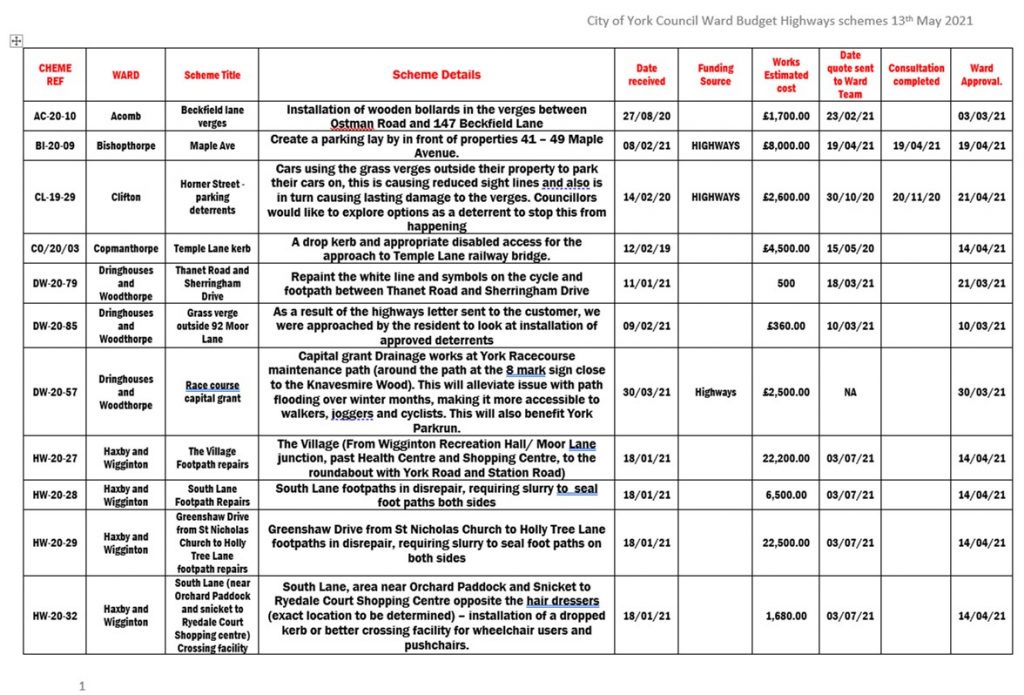
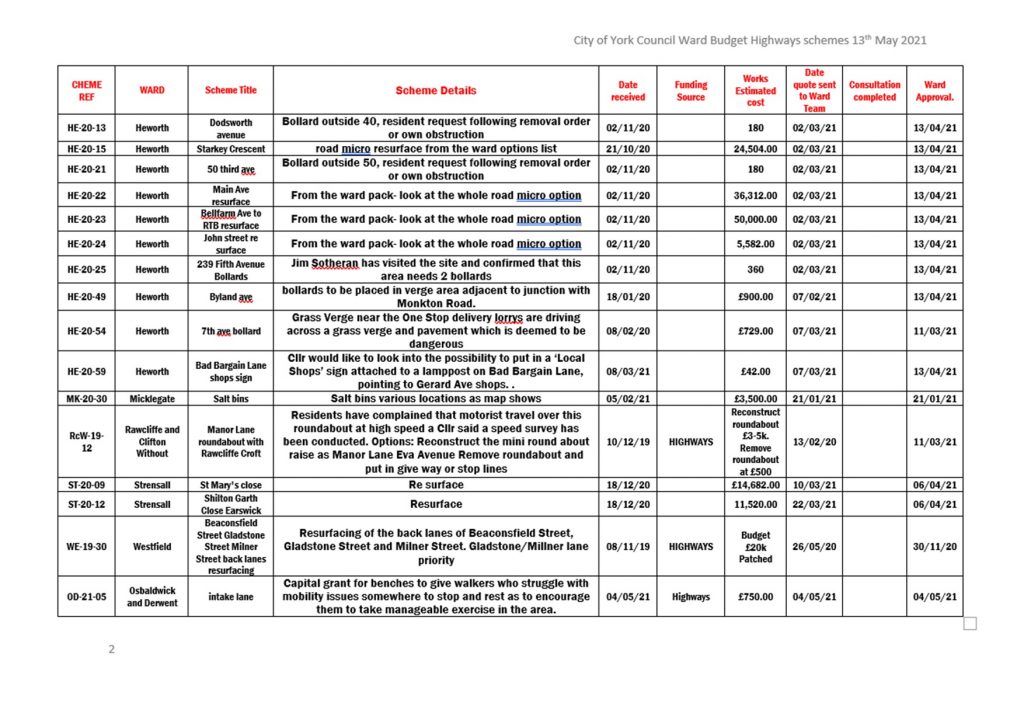
In Westfield, the local Councillors have opted to allocated £20,000 towards the repair of back lanes in the Beaconsfield Street, Milner Street and Gladstone Street area.
They are right to do so.
A resurfacing programme, which was started some 20 years ago, stalled leaving the lanes very uneven and with a patchwork appearance. The lanes are mostly paved with traditional setts. These are very hard wearing but hugely expensive to relay.
We suspect that the available budget will allow only the worst of the uneven stretches of lane to be resurfaced probably using a bitmac overlay.
One other consequence is likely to be that the poor condition of the main highways in the area will become more apparent. School Street has been a particular embarrassment for some years.
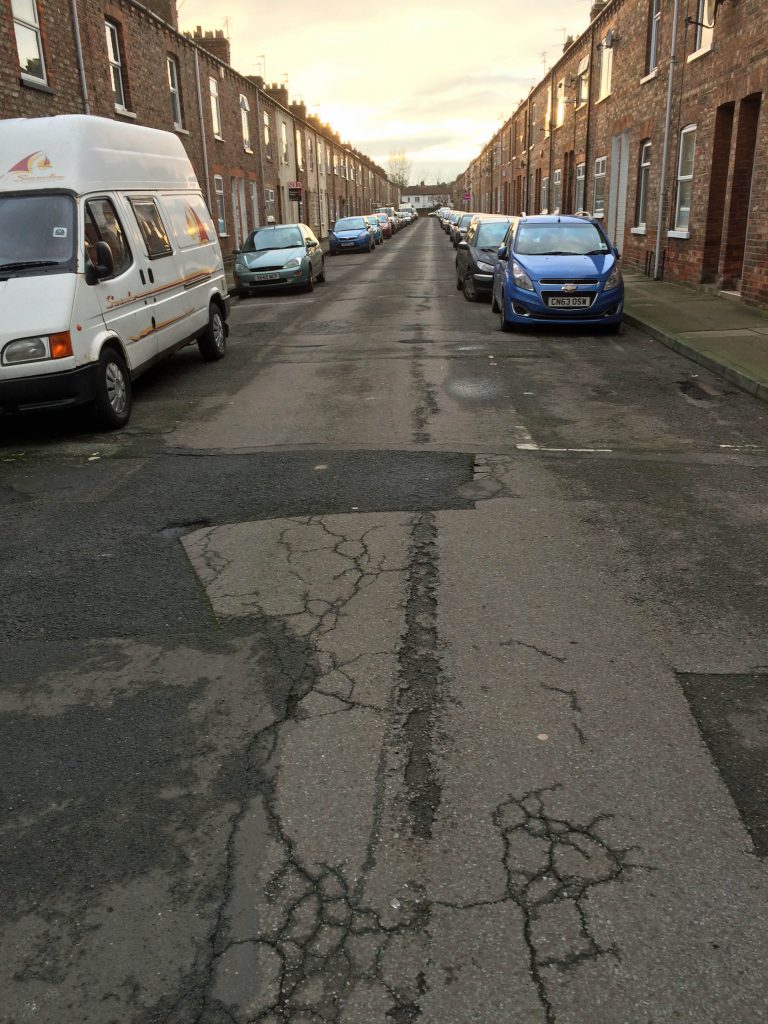
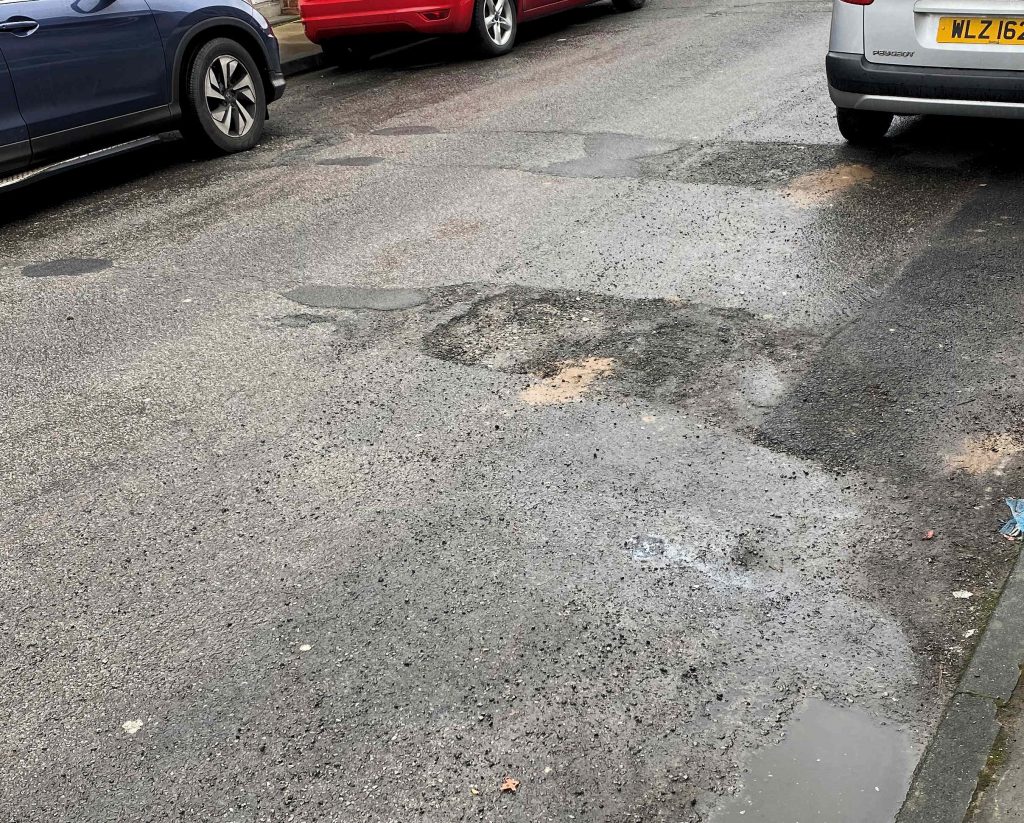
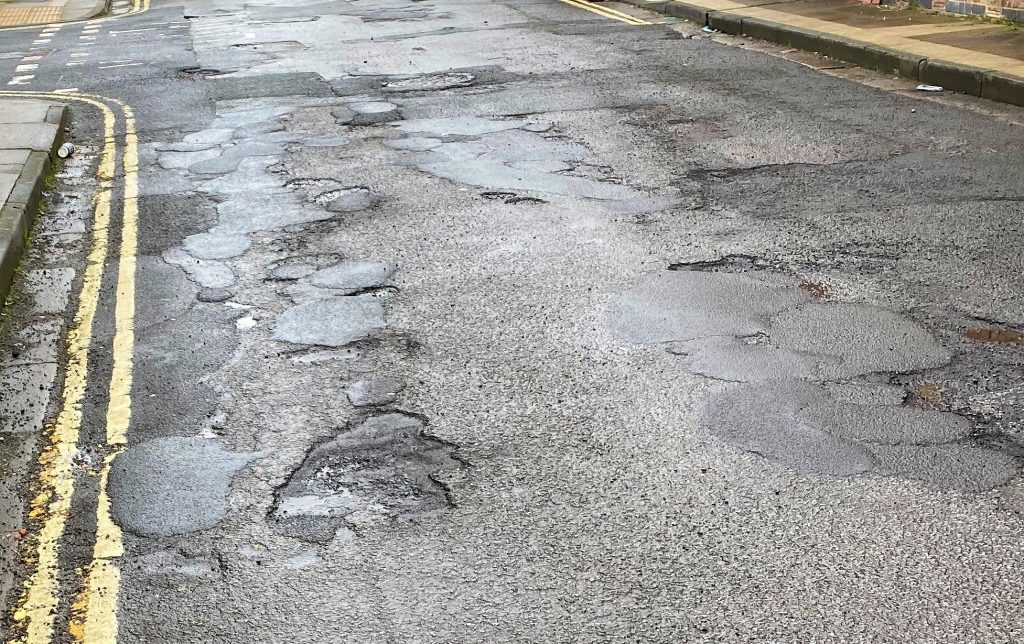
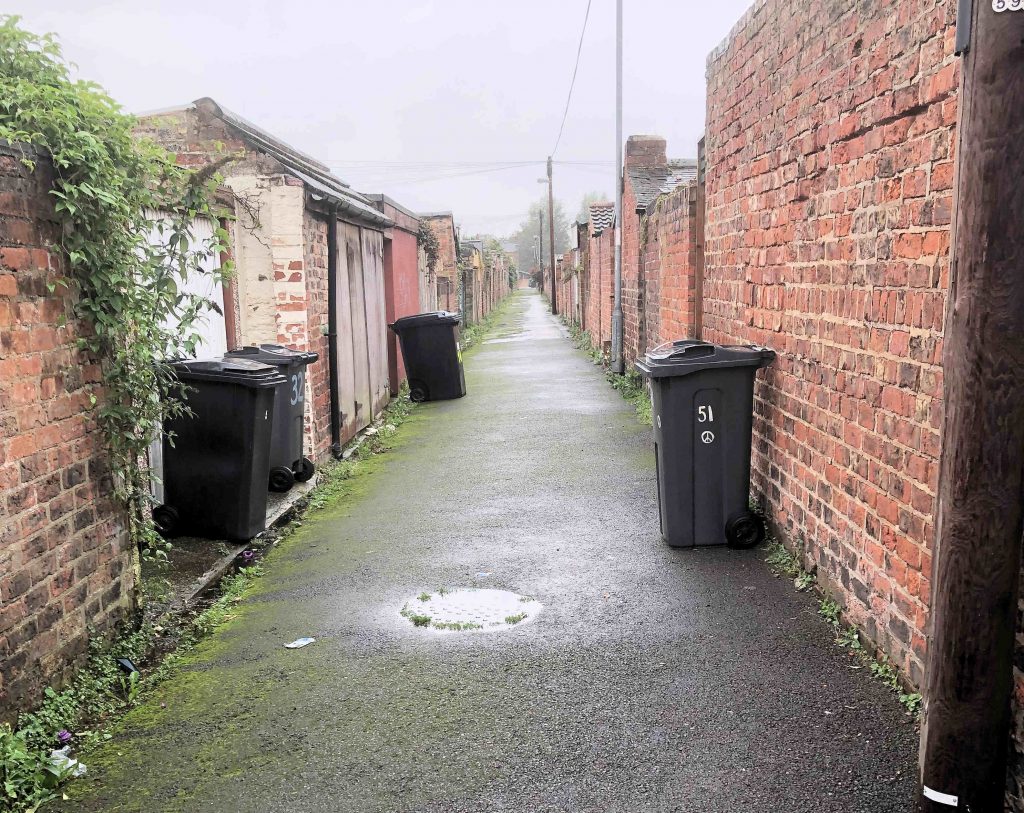
Hopefully more funding will be found for the resurfacing of minor roads in future years.
The programme of repairs to York’s highways network, that will take place during 2021/22, has finally been published. The programme is usually agreed in February. Work has already started on some of the listed schemes.
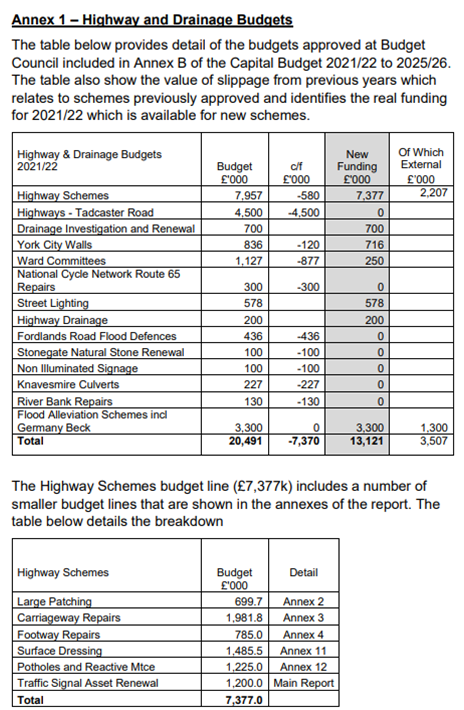
There is some mixed news in the report which was approved at a “behind closed doors” meeting apparently held on 23rd April.
The highways maintenance programme (which includes not just carriageway and footpath repairs but also drainage, street lighting, City Walls, flood alleviation etc,) is one of the services which most interest residents, the programme has been delegated for officer determination for some years. Thus, the reports are not subject to scrutiny and alternative ways of allocated the budget are not publicly debated.
One key sentence in the report sums up the dilemma faced by the Council.
“Notwithstanding previous levels of investment the current funding levels are not sufficient to keep all our assets in their current condition”.
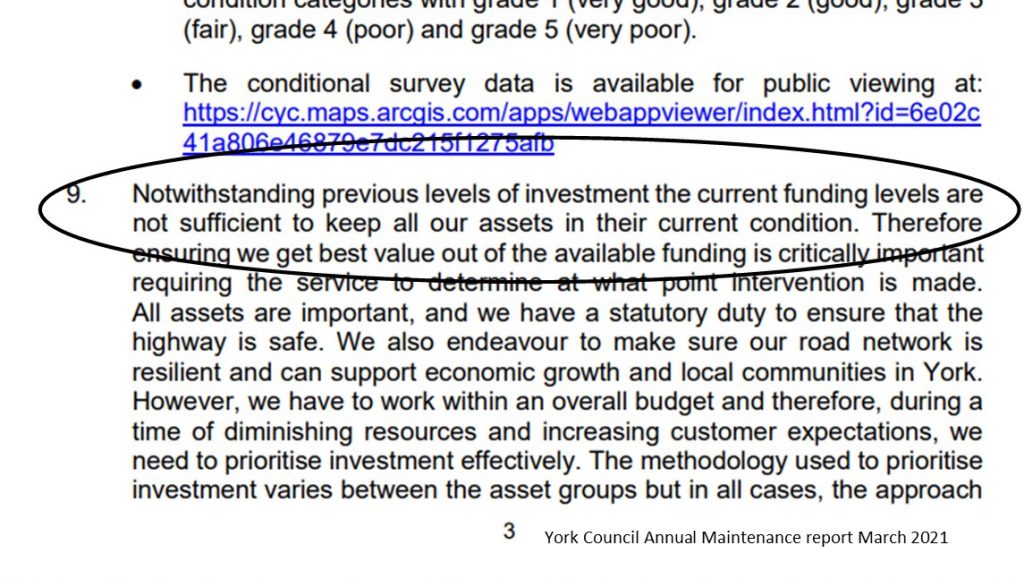
In effect, the Council has decided to focus resurfacing works on busy roads. Most side roads are being left to crumble.
Some work scheduled for 20/21, including the whole of the micro patching programme in Woodthorpe, has been delayed into the current financial year.
There is some good news.
Several long term problem locations in west York, including parts of Foxwood Lane, Askham Lane near the A1237 intersection, The Green, Bradley Lane near Rufforth, the low numbered end of Gale Lane and Thanet Road are scheduled to be resurfaced this year.
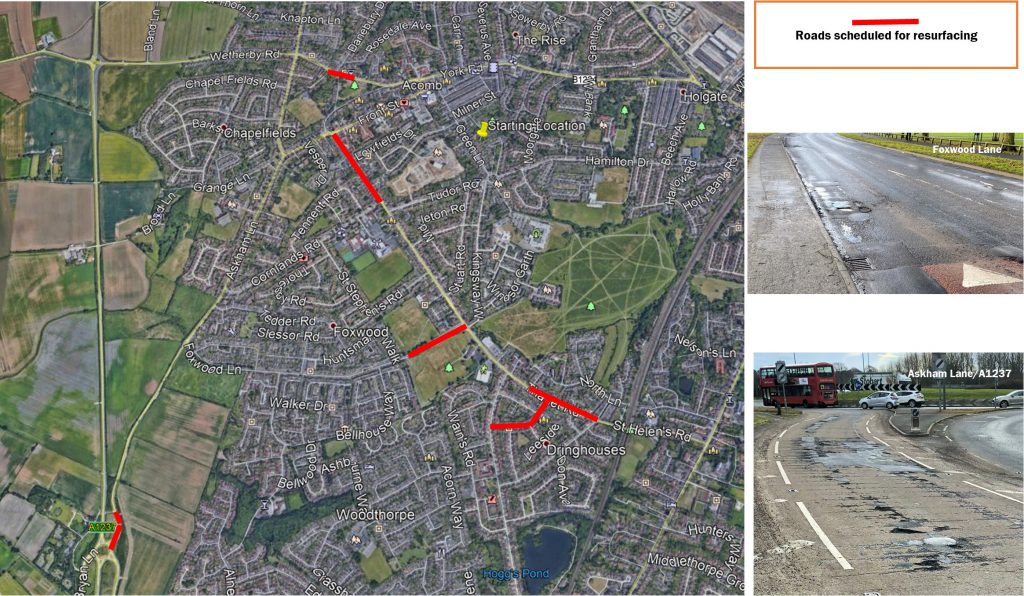
But there is no allocation for repairs on School Street and the surrounding area behind the Front Street shops, nor at many other sub-urban locations.
No footpaths in the Westfield area will be resurfaced.
There is no mention in the programme of the repairs needed to off-road cycle track infrastructure nor is there any listing of how the £1 million delegated “ward budgets” will be spent.
£877,000 of the latter budget, due to be invested last year, is being carried over into the current year. At the very least residents should be given the opportunity to influence how that section of the budget is spent.
All in all its seems that the decline in maintenance standards is set to continue for another year.
Although the new financial year starts today, there is still no sign of the York Councils road resurfacing programme for 2021/22.
The plan is usually published in March prior to going though an approvals process.
In recent years the allocation of the budget has been delegated to officers at the authority with any decision meetings held behind closed doors.
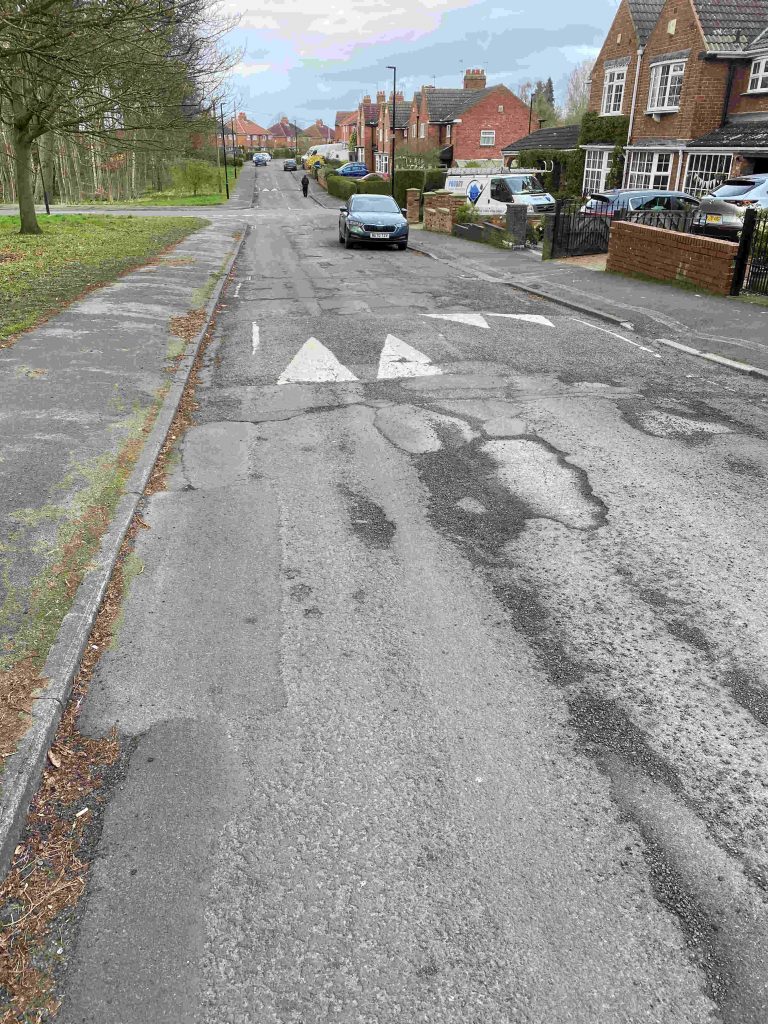
The Annual Local Authority Road Maintenance (ALARM) survey has however been published.
The study examines the scale – and potential costs – of delayed road maintenance schemes across the country.
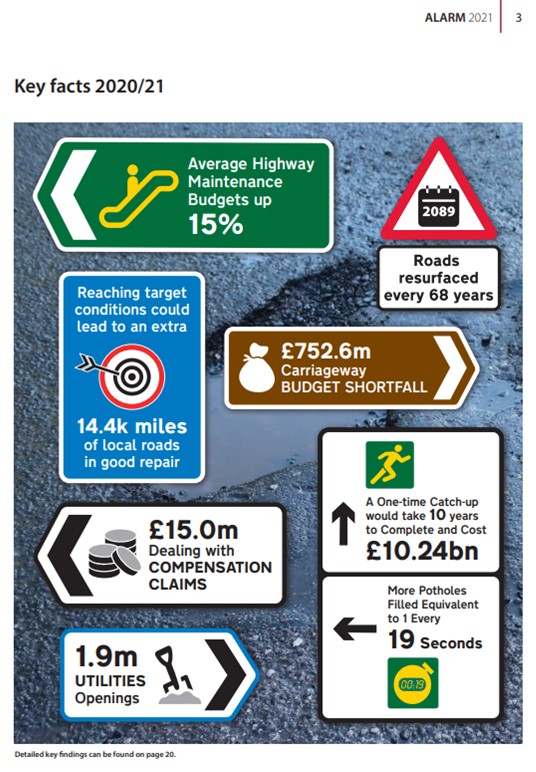

Ageing and outdated traffic signals at Clifton Moorgate and Hurricane Way junction are set to be replaced next week by City of York Council.
Works are estimated to take around seven weeks to complete and will start on Monday 22 March.
New, more reliable, traffic signals will be installed on the busy junction located within the Clifton Moor shopping area, North of York. In addition to this there will be improved pedestrian and cycling crossing with them being widened and resurfaced.
The works will also enable the new systems to link direct to the council’s Traffic and Control Centre, so that the Network Monitoring Officers can manage the flow of traffic better in busy periods by adjusting traffic lights to best suit traffic conditions.
The works will be carried out by the council and specialist traffic signals contractor Dynniq. Generally, the hours of working will be 9am – 4:30pm, seven days a week.
In order to safely construct part of the work some evening works may be required. Notification of these will be provided in advance.
To allow us to undertake the work safely and to minimise disruption to users there will be some restrictions during the works.
These include:
The junction will be operating under temporary signals during the traffic signal replacement works and motorists are expected to experience delays while the works are underway.
Controlled pedestrian crossings will be provided during construction to allow pedestrians to cross the road safely. Some temporary footway closures will be in place to allow works to be undertaken, however, full access will be retained to all businesses and properties during construction and pedestrian and cyclist routes through the works will be clearly signed
Those using the junction are urged to plan ahead, allow more time for journeys on these routes and to consider alternatives and to use public transport where possible.
To find out more about the scheme visit www.york.gov.uk/HurricaneWay
For any enquires regarding these works please send correspondence to: tsar@york.gov.uk
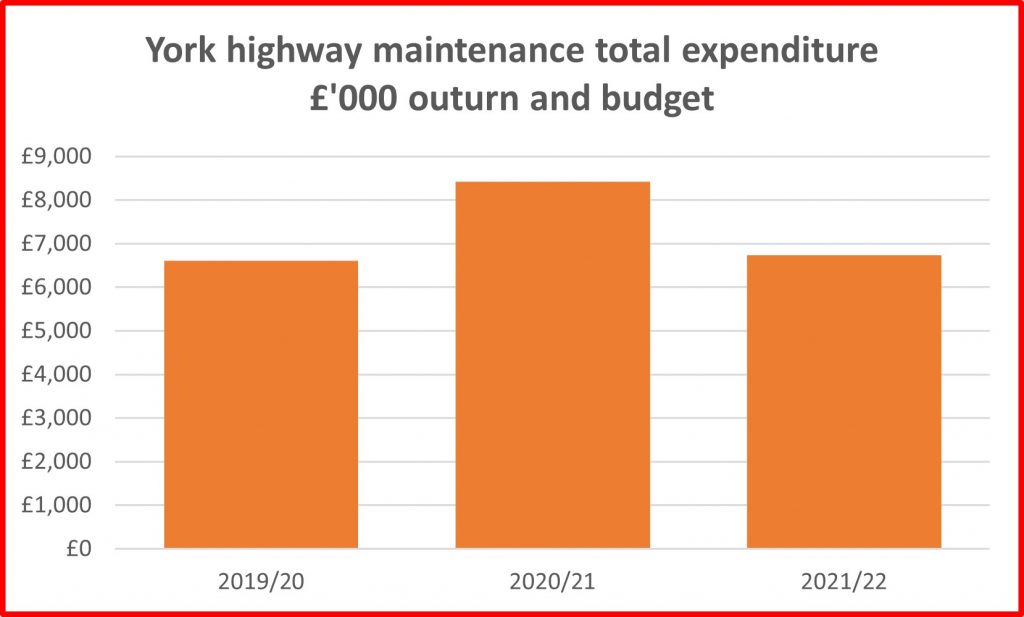
A response to a Freedom of Information request has revealed that the Council intends to spend 20% less on repairing roads and footpaths in the City during 2021/22 compared to the current year.
The decision will come as a disappointment to many drivers and pedestrians and will be a particular blow for cyclists, many of whom have criticised the rapidly declining quality of local highway surfaces.
Highway maintenance is one of the expenditure areas in the Council where essentially you get what you pay for. So less money inevitably means that fewer paths and carriageways will be resurfaced.
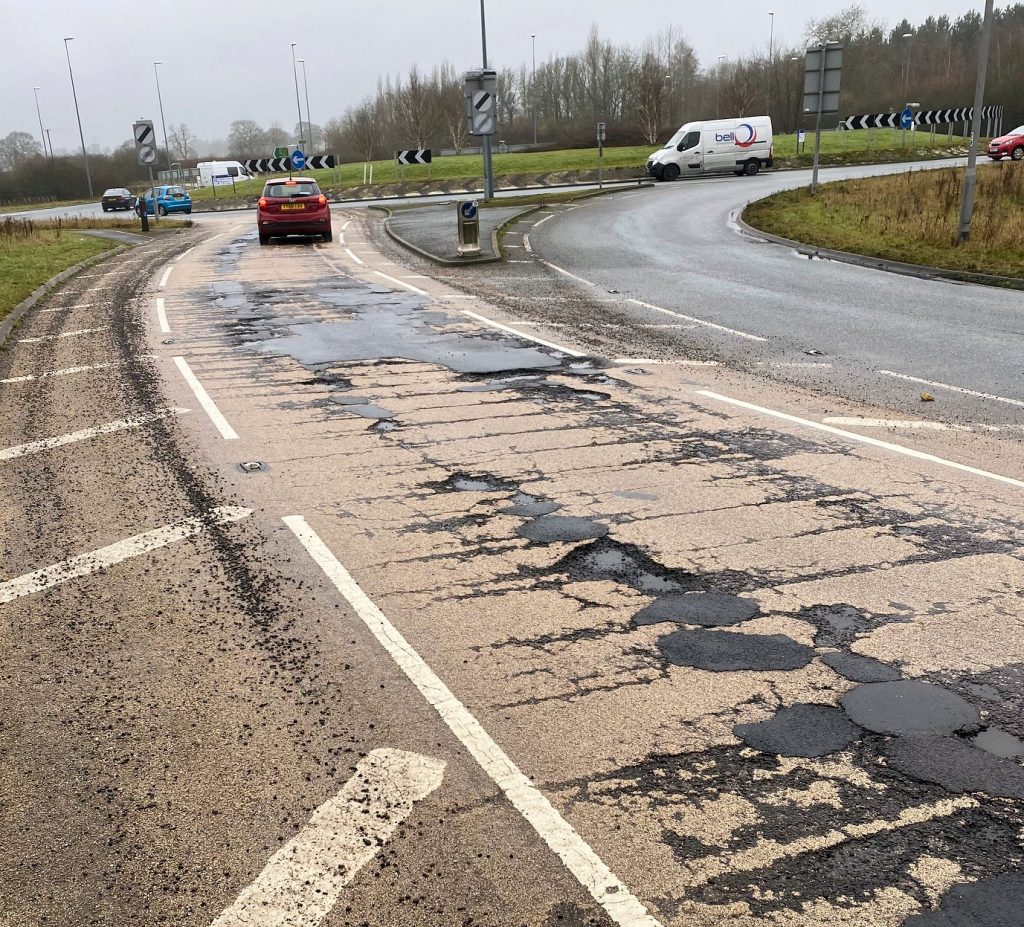

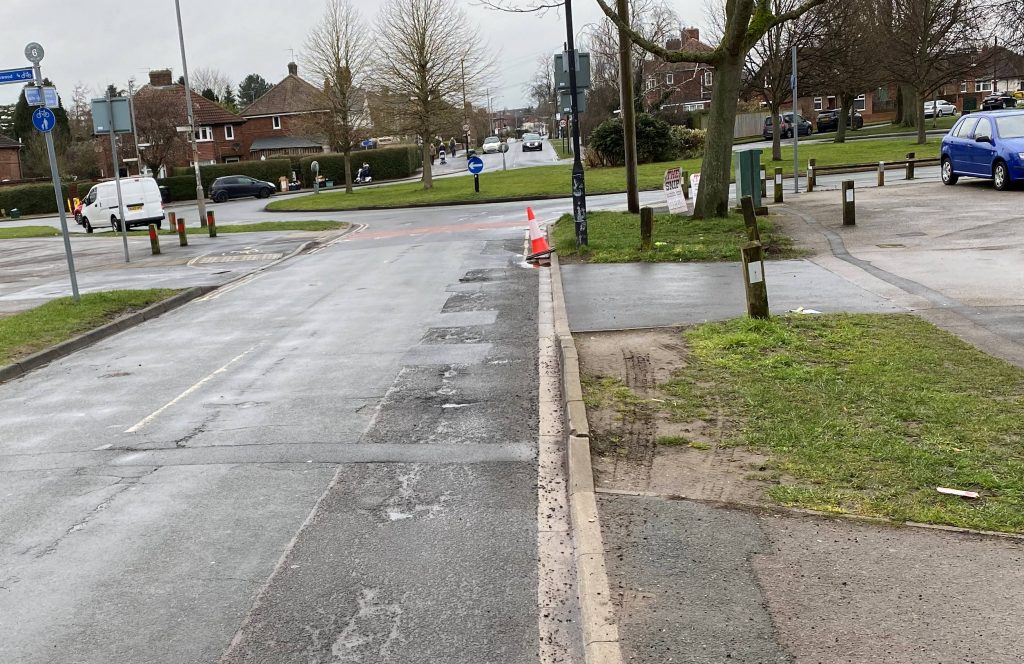

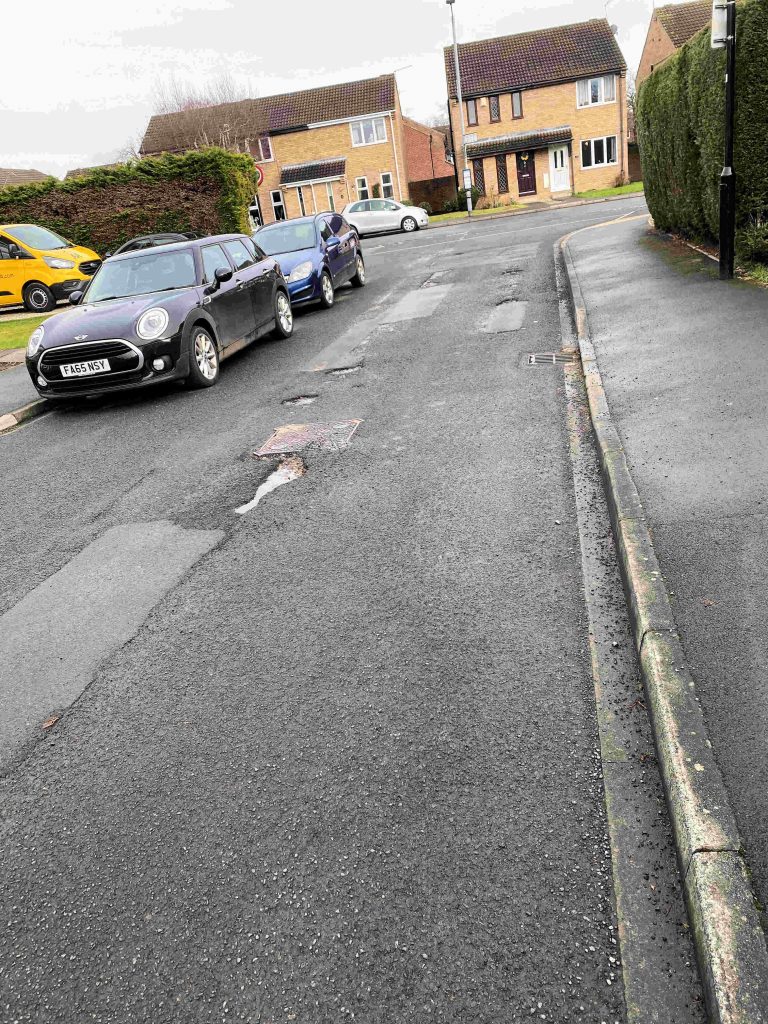
The Council will announce shortly what proportion of the budget it will spend on reactive pothole filling rather than, longer lasting, patching and resurfacing schemes.
Sources at the Council have criticised inconsistent central government funding allocations – such as the annual so called “pot hole” fund – which make long term investment planning difficult. A late announcement of funding for the resurfacing of Tadcaster Road came only weeks after the work had been completed using local taxpayers money (and is now being done again).
However, there will also be concern that some money has been taken from the maintenance budget to fund other projects. Several new schemes, such as rural cycle routes, are sucking funds from the budgets needed to repair existing cycle paths..
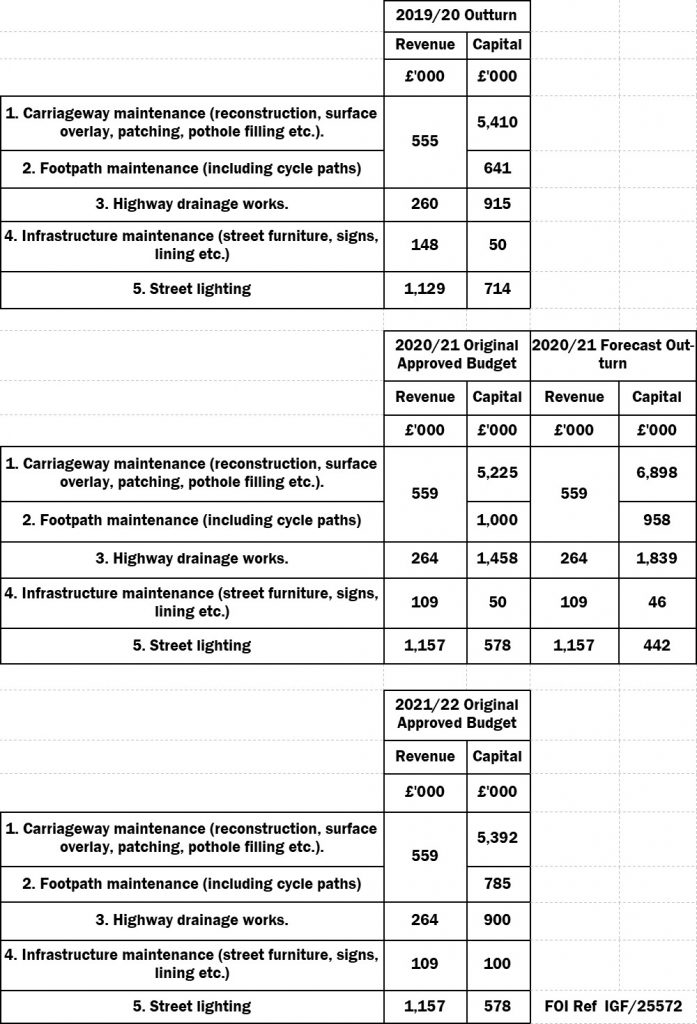
The Council has never recovered from the major reductions made to highways funding some 8 years ago.
Successive administrations have failed to find ways of returning investment levels to those seen earlier in the century.
It is estimated that the backlog in maintenance work nationally would require investment of around £11 billion to rectify.